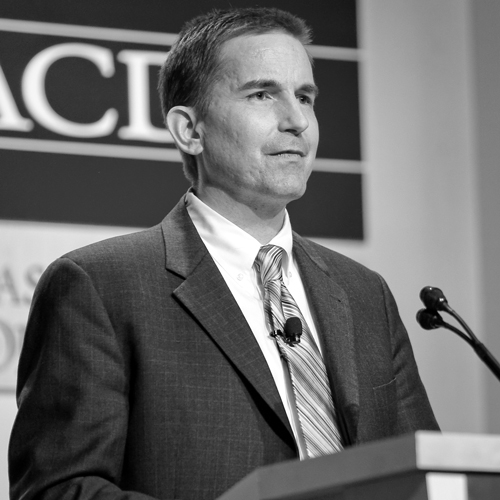Modern Counsel: Which legislative issues could affect the household product industry?
Brian Del Buono: Sun Products has more than 300 US and Canadian patents, and we are actively involved in research and development and innovation, so the revamping of the US patent system has really changed the IP game for our company.
MC: How so?
BD: The United States went from a “first-to-invent” to a “first-to-file” system for awarding patents. Now it doesn’t matter if you’re the first to innovate; you have to be the first to file with the patent office. The changes provided better chances for out-of-court settlements—either through the patent office or in direct talks between competitors—to resolve patent challenges and negotiate licensing disputes.
MC: What have those changes meant for your legal department?
BD: Between the new filing and resolution processes, our legal department has adapted how we work with internal teams, as well as with competitors and technology partners. We’ve sped up our innovation process and pushed the legal team to move as quickly as we can to protect the results.
MC: Do you think the reforms were appropriate?
BD: Switching to a first-to-file system was a positive step. It puts the United States in line with the rest of the world. Since we do business internationally, dealing with just one approach simplifies things for us. Because of the speed that’s required, it’s made us more nimble and agile with our IP work than we’ve ever been, and, frankly, I think it’s stimulated our innovation pipeline. We work much more collaboratively with research and development on projects. The resolution options have been positive for us, as well; it’s a much more cost-effective approach and cuts down on uncertainty. Challenges don’t require up to five years and millions of dollars anymore, and that’s changed our risk tolerance. Innovation teams can decide to find other solutions if we encounter a potential challenge, or we can negotiate directly—often in a matter of months—with competitors to find an equitable, mutually agreeable resolution.
MC: Do you foresee any more changes to the regulatory environment in the near future?
BD: There is the prospect for revisions to the Toxic Substances Control Act (TSCA), which has been in place since the 1970s. Congress has been trying for years to update the law, which provides a framework for the Environmental Protection Agency to regulate which chemicals are designated as toxic. A lot has changed since it was enacted in terms of consumer expectations and scientific knowledge. So, if and when revisions are made, it could mean extensive changes for companies in numerous industries that work with chemicals, including consumer packaged goods companies like ours.
MC: What are some of the revisions being considered?
BD: The hot-button discussions are about preemption—whether any state can implement more stringent regulatory requirements than the federal government. The danger is that if states act individually, we could potentially face 50 different regulatory schemes for which substances are considered toxic and what has to be disclosed on labels.
Another of the issues that concerns us is the disclosure of proprietary ingredients, which some states are demanding so consumers can decide if they want to buy a product. That sounds reasonable, and we have nothing to hide, but even in the laundry detergent space, there’s a lot of technology and innovation involved. It’s not just soap in a bottle. There are fragrance developments and chemistries related to whitening, for example.
MC: What could the impact of those revisions look like for Sun Products?
BD: From a business standpoint, preemption could mean eliminating certain products or doing a lot of expensive research and development to find replacement ingredients, which may ultimately lead to higher consumer prices. We certainly favor reforming the act in a science-based, consumer-friendly way.
Absolute ingredient disclosure raises the prospect of anyone being able to copy our trade secrets, which is, of course, a major concern for any innovative industry like ours. We need to find a balance between proper protection for confidential business information and providing consumers with the information they need to make informed buying decisions. The real challenge is finding a balance between what’s appropriate for our industry and what some nongovernmental organizations and individual states are pushing for.
MC: What are your predictions for how the new IP requirements and TSCA reform will unfurl in the near future?
BD: I think the new mechanisms for resolving IP challenges will help weed out low-quality patents that perhaps shouldn’t have been granted in the first place, and they will provide more certainty as we navigate through our innovation programs. That will be good for businesses and for the consumers. And for TSCA—if revisions get done before the elections next year, with a Republican-controlled House and Senate, we have more of a chance than ever before of coming up with a scheme that industry, government, consumers, and public interest groups can all get behind. So I’m optimistic. But who knows? I said that during the last session of Congress, too.


